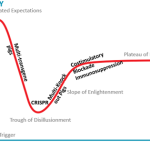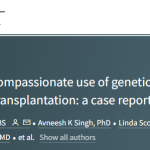A new study published in The Lancet has revealed the most extensive analysis to date on what led to the eventual heart failure in the world’s first successful transplant of a genetically modified pig heart into a human patient. The study, conducted by University of Maryland School of Medicine (UMSOM) physician-scientists, found that the heart functioned well for 47 days after surgery, with no signs of acute rejection. However, the patient, 57-year-old David Bennett Sr., ultimately died from heart failure due to a buildup of scar tissue.
Despite the patient’s death, the study’s findings are still considered a major breakthrough in the field of xenotransplantation, which is the transplantation of organs from one species to another. The study’s authors believe that the findings will help to inform future research and development in this area, and could ultimately lead to the development of a viable alternative to human organ transplantation.
Our company is at the forefront of the development of information systems for xenotransplantation. We believe that the findings of this study could have a major impact on our industry, and we are excited to continue our work in this area. If you are interested in learning more about our company or our products, please visit our website or contact us today.
Summary
The first pig-to-human heart transplant was a major success, and the new study published in The Lancet provides valuable insights into the potential of xenotransplantation. Our company is committed to developing information systems that can help to advance this field, and we are excited about the future of xenotransplantation.












